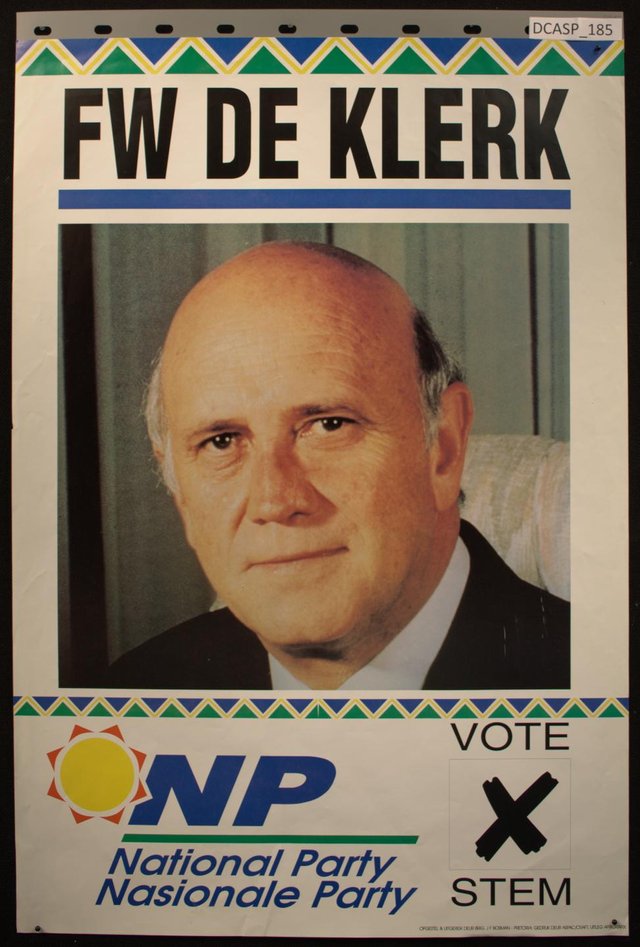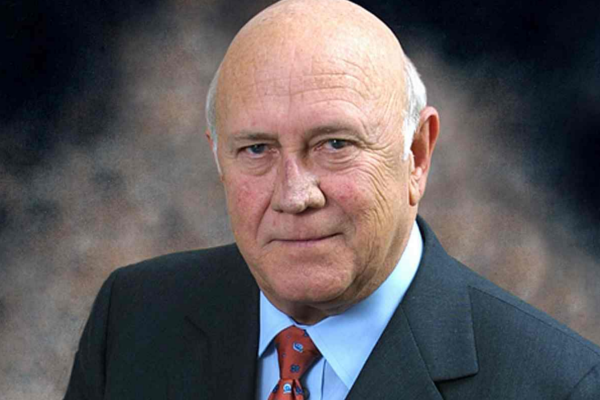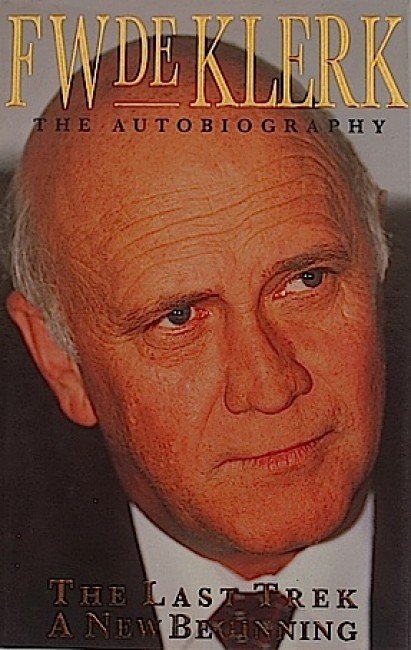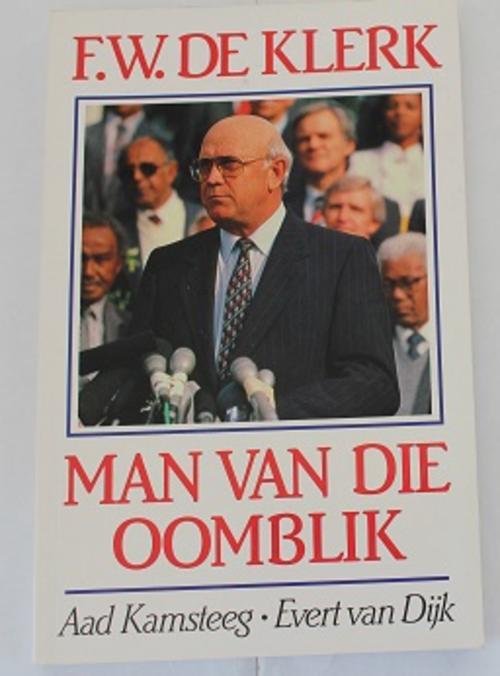Back to your emails and our discussion on South African politics:
I have often been chided and have come under attack in forums where Afrikaners discuss politics and the politics of recent history for expressing certain opinions that are not so popular. A favorite scapegoat for Afrikaners is hanging the changes that took place on the shoulders of one person or a certain company of persons that held power at that time.
One of those persons is none other than F.W. de Klerk, that you mentioned in your email and who is quite hated among certain sections of the Afrikaner community (mostly the right, but also those more to the center) and often some conspiracy idea is added into the mix/added to the blame and accusation, and that is that De Klerk was a puppet of the International money powers (I have touched on the conspiracy theories people often revert to, when trying to explain the complex and often painful events of the recent past in South Africa and what has come over the Afrikaner), and this is one of them.
I have often defended De Klerk, because I am convinced of his honorable intent concerning his people, the country in general and his political party. Sure, I think he was pressurized both externally by big business and the International community and internally by the demands of the suffering/or disenfranchised majority – an untenable situation by the late 80’s and early 90’s. I believe, not without some reason both through experience and study, that our Afrikaner leaders were honest…contrary to modern conventional belief regarding Verwoerd and many black South Africans regarding all Afrikaner leaders of the past and Afrikaners regarding De Klerk. You must remember that our political system was born out of colonialism, it is insular, Nationalistic and puritanical (under the auspices of the Dutch Reformed church and sister churches). Therefore according to me all leaders like Genl. Jan Smuts, Dr, D.F. Malan, Dr. Hendrik Verwoerd, B.J. Vorster, P.W. Botha and De Klerk were honorable people and only had the best intentions for their people. That is why I have created the Facebook page a few years ago with the theme: “Vergifnis en versoening met ons Afrikaner leiers” (In English: “Forgiveness and reconciliation with our Afrikaner leaders”)
https://www.facebook.com/Vergifnis-en-Versoening-met-ons-Afrikaner-Leiers-VAL-189366744577550/
I have also defended De Klerk, because blaming him only takes him out of the context he was in. In that context he operated with the help and assistance and approbation of others. Blaming only him then also attempts to absolve those who weren’t directly involved from any blame – for instance someone might say that they did not realize the full question being asked during the 1992 referendum and the full implications of that referendum, or even the way the political winds were blowing, OR EVEN THE IMPLICATIONS OF THE APARTHEID SYSTEM and how it was viewed in the end. Now, this ignorance might be true, but it disregards the context all Afrikaners were a part of during that time including De Klerk. In other words they definitely knew the score as it were, they knew what was going on and for some reason did nothing to influence things into the direction they wanted it to go (for instance more to the right) or they wanted the new dispensation, even if it was implicitly, to dawn.
I gather from your previous email that De Klerk has fallen out of favor for you in your estimation. But I do have to remind you of something that I mentioned to you during our first conversation in that: any potential political solutions suggested at that late point during the early nineties (like those by Chief Buthelezi, or by the right; a Volkstaat (by prof. Carel Boshoff) or the far right to keep the entire country for whites (by the AWB and others); or even the promises or hopes expressed by De Klerk) was plagued by a crisis of faith as viewed by the resistance movements and the International community. In other words political solutions, however well intended, like the tri-cameral experiment during the eighties or solutions proposed during the negotiations were viewed with suspicion, or as out of date, a delaying tactic at the very least and not genuine. So, even though the State still had the levers of power to negotiate a favorable solution for the Afrikaner, time and sentiment about the rights of the majority had made all other solutions moot arguments and the footing of De Klerk and the National Party shaky and like a house built on sand.
(Incidentally I met one of De Klerk’s drivers/body guards at the place I worked in London and I got him to give a copy of his autobiography to De Klerk to sign, which De Klerk did.)
That’s about what I had to say.
Kindest regards,
Omar.
- Written by Omar Daniel Fourie and emailed 18 July 2018.




Curated for #informationwar (by @openparadigm)
Relevance; Geopolitics
Our purpose is to encourage posts discussing Information War, Propaganda, Disinformation and other false narratives. We currently have over 7,500 Steem Power and 20+ people following the curation trail to support our mission.
Join our discord and chat with 150+ fellow Informationwar Activists.
Connect with fellow Informationwar writers in our Roll Call! InformationWar - Contributing Writers/Supporters: Roll Call Pt 8
Ways you can help the @informationwar
Downvoting a post can decrease pending rewards and make it less visible. Common reasons:
Submit